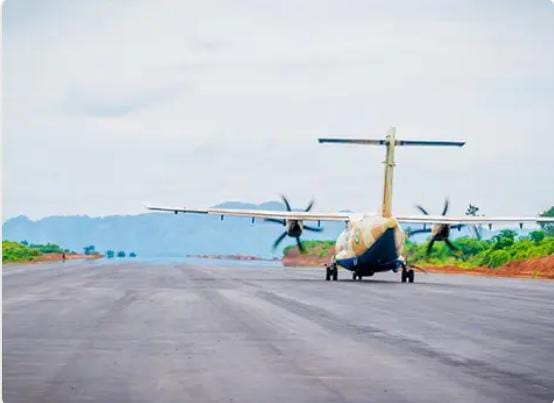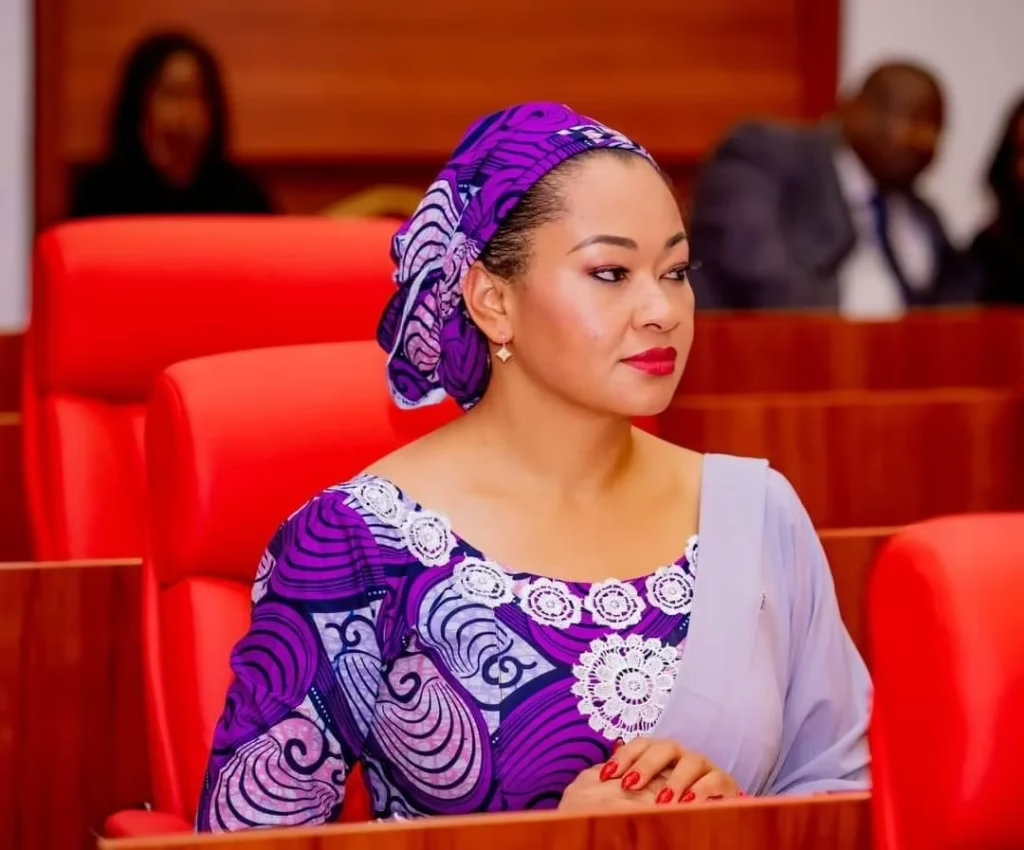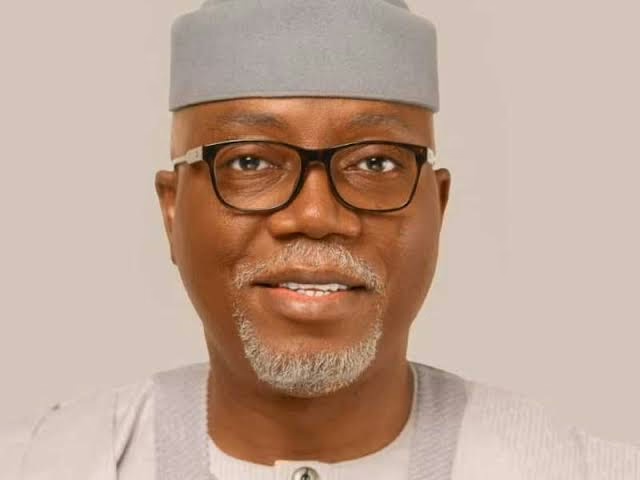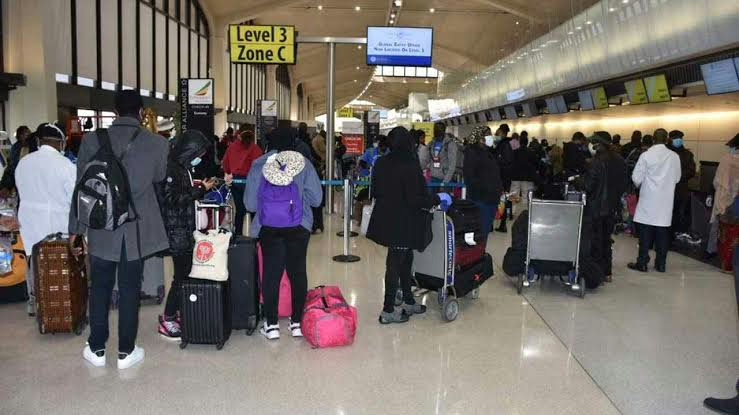No fewer than 15 states have spent N301 billion on airports that failed to meet the yearly passenger traffic requirement per airport.
The airports, which are spread across the country, are underutilized as many hardly record daily flights while others only have a few chartered flights sometimes.
Constructed by state governments, they depend mainly on a few viable airports to survive, thereby corroborating the public outcry that often meets the decision of state governors to construct them.
Nigeria currently has 31 airports, with many operated by the Federal Airports Authority of Nigeria, FAAN, according to the Nigerian Civil Aviation Authority, NCAA.
Of this number, about 15 were built by state governments since 1999. They include Asaba Airport, Mohammed Buhari Airport, Ebonyi, Akwa Ibom Airport, Uyo, Bayelsa International Airport, Ogun Cargo Airport, MKO Abiola International Airport, Osun, uncompleted, Ekiti Cargo Airport, Anambra Cargo Airport, Umuleri, Abia Airport, Wachakal Airport, Damaturu, and Dutse International Airport.
Others are Lafia Airport, uncompleted, Kebbi Airport, Auchi Airport, Edo State, uncompleted, Zamfara Airport, Nasarawa Airport and Gombe Airport.
Many first-generation airports built by the Federal Government during the military era, Sunday Vanguard learnt, also have profitability questions.
They include Makurdi, Port Harcourt, Enugu, Kano, Kaduna, Benin, Owerri, Jos, Sokoto, Maiduguri, Yola, Bauchi, Akure, Ibadan, Ilorin, Calabar, Minna and Katsina airports.
However, those built by the states, which were handed over to FAAN for management, it was learnt, only add financial burden to the agency given what aviation experts called unsustainability.
Recently, Director-General of NCAA, Captain Musa Nuhu, said the proliferation of state airports had placed a huge burden on the agency.
He said: “And these airports do not even generate money. Some airports have one or two flights a week. Some are even executive flights. Honestly, we must collectively find a way to deal with that because for me, even as NCAA, it is putting a lot of unnecessary pressure on us.”
Earlier, the Managing Director of FAAN, Captain Rabiu Yadudu, lamented that most of the facilities constructed by state governments are not commercially viable.
He noted that the continuous building of airports by governors constitutes a complex problem for the agency, saying NCAA, FAAN and Ministry of Aviation need to sit and address the issue.
Yadudu said:”An airport that needs N300 million a month (to maintain) and they have just 1,000 passengers a month, there is no magic that can make them sustainable and FAAN doesn’t have the money. I think in the national interest, let’s come up with a plan; Federal Government support, intervention, and others to make sure that if you build it if it is not workable now, one day, it will be sustainable because gradually, it will happen.
“This is a very complex situation. It is not a straight forward situation because to us at FAAN, the easiest option is to tell them not to build more state-owned airports, but whatever we do at FAAN, we look at the short and the long terms. “
Long before now, the viability of Nigerian airports had been a disturbing issue, given that instead of generating wealth, they drain the resources of the Federal Government.
Investigation shows that the bulk of funds FAAN uses in running all the airports are generated from Lagos airports.
Minister of Aviation, Mr Festus Keyamo, gave credence to the finding recently, saying 60 percent of the revenue of FAAN comes from Lagos.
Apart from depending on FAAN for survival, Sunday Vanguard gathered that some of the airports are often indebted to the agency, leading to a shortage of revenue.
The case of Gombe and Kebbi airports is a typical example of how state-built airports overburden FAAN.
Following alleged N731, 873, 721 million debt, FAAN threatened to withdraw essential services to the Gombe and Kebbi airports four years ago. The latter reportedly settled the debt in 2021.
Regardless of issues like this and the growing concerns about the necessity of more airports, state governors have continued to build more at the expense of dwindling resources.
Findings by newsmen show that in the last 15 years, nearly N301 billion has been spent on airports aviation stakeholders described as unproductive across many states.
The construction of the airports have always been embroiled in controversy as critics often accuse state governors of embezzling funds through such projects.
For instance, immediate past governor of Zamfara State, Bello Matawalle, is currently battling to clear his name from the allegation of siphoning money through the construction of Gusau International Cargo Airport.
His successor, Governor Dauda Lawal, accused Matawalle of misappropriating billions of naira through the abandoned cargo project built in the state.
Lawal alleged that Matawalle’s administration carried out dubious transactions of about N6, 775, 949, 561 .50 on the abandoned cargo airport project in Gusau.
However, Matawalle, who is now the Minister of State for Defence, has denied the allegation.
He described the claim as nothing but a calculated mischief and diversionary tactics.
The Minister stated his side of the story in a statement by a former Commissioner for Information in Zamfara State, Ibrahim Dosara.
“In the first instance, a bill of N28, 000, 000, 000 was submitted to government for consideration. However, due to the foresight and prudence of former Governor Matawalle, his government rejected the bill which the former Governor considered outrageous and crazy”, Dosara said.
“The former Governor, therefore, insisted that the amount be reviewed to considerable sum, which was downsized to N11, 000, 000, 000”
The Zamfara scenario is just one of the many controversies trailing the construction of airports by state governors.
A breakdown shows the cost of constructing the airports across the country irrespective of opposition from several quarters.
EBONYI: N36 billion
Immediate past Minister for Aviation, Hadi Sirika, conveyed the approval for the airport construction in a letter to then-Governor David Umahi, which was signed by the Director of Safety and Technical Policy, Capt. T A Alkali on behalf of the Ministry in 2019.
At the commissioning of the airport, Umahi revealed that he spent over N36 billion to build the international airport, located in Onueke, Ezza South Local Government Area.
Representative of NCAA, at the event, General Manager, Aerodrome Services, Mr Oladipo Adebayo, described the airport as the best in Nigeria.
ANAMBRA: N6 billion
In 2018, the Federal Government approved the construction of Anambra airport.
At the time, the administration of former Governor Willie Obiano said when completed, it would serve as a cargo airport.
There were criticisms over the project given the proximity of Asaba and Enugu airports.
However, the project, which was sited in Umileri, officially commenced in 2020 and was completed within 15 months.
At the opening ceremony, Obiano said the project was solely funded by the state, adding that nothing was borrowed to fund it.
In 2021, the state government said N6 billion was spent and not $2 billion as alleged in some quarters.
EKITI: N16 billion
The decision of the administration of ex-Governor Kayode Fayemi to construct a cargo airport in Ekiti was met with stiff criticisms.
Among the issues of viability raised, it was said that since Akure airport, which is close to Ekiti, hardly records daily flights, the project was needless. On October 22, the facility, located close to Afe Babalola University, was commissioned by Fayemi. The construction was awarded to CCECC Nigeria Limited by Fayemi in 2019.
As of January 2023, Special Adviser to Governor Biodun Oyebanji on Budget, Economic Planning and Performance Management, Niyi Adebayo, revealed that N16. 6 billion had been spent on the yet-to-be-completed facility.
He explained that the fund was used for perimeter fencing, completion of the runway and taxiway, terminal building and payment of compensation for the farmers whose farmlands were acquired for the project.
BAYELSA: N70 billion
Former Governor Seriake Dickson conceived and built the Bayelsa International Airport. The construction began in 2012 and completed in February 2019.
Amid allegation by former National Chairman of All Progressives Congress, APC, Senator Adams Oshiomhole, that the project gulped N100 million, Dickson said it was done at the rate of N70 billion.
OSUN: N69 billion
Osun State government under ex- Governor Olagunsoye Oyinlola proposed the construction of MKO Abiola International Airport at Ido-Osun, Ede North/ Egbedore Local Government Areas. Work started during the era of former Governor Rauf Aregbesola. The airport was planned to provide human and cargo transportation.
The project was first awarded to Aeronautics Engineering at the cost of N4.5 billion in October 2012. It was later reviewed to N11 billion to accommodate more features.
However, in 2017, the contract was awarded at N69 billion to a firm named All Works of Life, AWOL, International Limited.
Last year, former Governor Gboyega Oyetola handed the project over to Nigeria Airflow, NAF.
OGUN: N40 billion
In 2021, Ogun Stage governor, Dapo Abiodun, commenced the construction of Ogun State Gateway Agro-Cargo International Airport.
The maiden test flights to the Gateway International Agro-Cargo Airport, in Ikenne Local Government Area of the state, took place in February this year.
At inception, the projected cost of the project was reportedly put at N40 billion.
AKWA IBOM: N25 billion
In 2006, then Governor Victor Attah began the construction of what later became Victor Attah International Airport, Uyo. It was later completed by the Godswill Akpabio administration. The state was reported to have spent N25 billion building the airport. Akwa Ibom also spent $100 million to build and equip the Maintenance, Repair and Overhaul, MRO, facility.
ABIA: Proximity
Despite the closeness of Sam Mbakwe Airport, Owerri, to Umuahia, Abia State capital, the administration of Senator Theodore Orji conceived the Abia Airport project. The governor had said a group of Abia businessmen had appealed that an airport be constructed to boost economic activities in the state.
JIGAWA: N4 billion
Dutse International Airport was established by the administration of former Governor Sule Lamido.
It was built at the cost of N4 billion by the state government and commissioned in 2014 by former President Goodluck Jonathan.
The facility is located less than 100 kilometres from Aminu Kano International Airport, making experts describe it as wasteful and needless.
From the time it was constructed to date, worries exist over its usefulness.
KEBBI: N14 billion
The administration of former Governor Saidu Daikingari constructed the Ahmadu Bello Airport at the cost of N14 billion.
At the time, the state government said it would attract investors, provide employment and generate revenue.
NASARAWA: N10 billion
Nasarawa State government, under the leadership of ex-Governor Umaru Tanko Al-Makura, conceived the project as part of moves to open the state for investment opportunities.
The airport, whose project cost was estimated at N10 billion, was also intended to ease cargo traffic at the Nnamdi Azikiwe International Airport, Abuja.
OTHERS: Unsustainable scale
Airports in Gombe, Zamfara, Benue and Delta were also built by state governors.
Speaking to newsmen, President of Aircraft Owners and Pilots Association of Nigeria, Dr. Alex Nwaba, said Nigeria needs more airports, but they are all being built at an unsustainable scale.
Nwaba said, “Airports are necessary to access a city or state and maintain its competitiveness. You can draw a straight line of correlation between cities that have airports and development against their peers.
“No one wants to go to his neighbour for export nor do they want to travel miles in a medical emergency. Yes, airports are long-term development assets.
“Nigeria needs more airports. The problem is they are all being built at an unsustainable scale.”
Also, the Chairman of Concerned Aviation Group, Mr. Barnabas Ezenwanne, said governors must be stopped from further building new airports.
He said the Federal Government should be blamed for granting licenses to operate to governors, who, he said, construct airports for personal reasons.
“Some airports constructed by state governors are dormant. It is even better to place a ban on the building of new airports. Now that we are talking about paucity of funds, some of these airports should even be converted into something else. Governors are constructing airports indiscriminately because the central government allows them. Only the Federal Government can stop further construction of airports in Nigeria,” he added.
Founder of Aviation Summit, Capt Dele Osanipin, said FAAN should stop funding dormant airports, saying doing so makes no economic sense.
Osanipin said:” I am not blind to the fact that accessing certain places by road comes with a lot of challenges, especially given the insecurity in the land. That said, state governors cannot continue with the culture of waste. We have been calling on relevant aviation authorities to stop granting licenses to them. Apart from draining their state’s resources, the airports overwhelm the financial capacity of FAAN.“
On his part, a former Rector, Nigerian College of Aviation Technology, NCAT, Zaria, Captain Samuel Caulcrick, said instead of agonizing over the number of airports, they should be seen as catalysts for development.
He said: “Airports are development’s catalysts as settlements spring up around airports with attendant economic activities. Given that perspective, the planner ought to focus on the catalytic aspect of building an airport to reap the economic gains.
“We should instead take advantage of the number of airports by rearranging development and pivoting on the available airports. One such reason is the lack of good road infrastructure to move local produce from the states to other areas or the outside world – air transport would bridge that shortfall.”
Also speaking, Chairman of West Link Airlines, Capt. Ibrahim Mshelia, said the number of airports should be higher than what it is.
He explained: “Airports are vital for national development. Nigeria currently should have at least 700 airstrips and approximately 50 airports.
“Airports are a necessity, not a luxury. For instance, if there is a need to rapidly deploy troops to places like Maiduguri for combat, using roads is not a practical option. Bandits can cause havoc before reaching the destination.
“Airports are essential to open up industrial and agricultural areas for the import and export of goods. The state of the road network in the country is often inadequate. Many states, like Imo, Rivers and Abia, with thriving industries, require airports for efficient transportation.
“Ideally, Nigeria should have a minimum of 36 airports, including one in the Federal Capital Territory. However, when there are educational gaps and hunger in the nation, building airports may not be a top priority. Another issue is that individuals who criticize airport construction might change their stance when awarded a contract for airport construction. This reflects a lack of patriotism in Nigeria.
“While the current locations of airports in the country are suitable, it’s crucial to consider the economic well-being of local communities. Providing employment opportunities at these airports can help alleviate hunger and poverty. In summary, Nigeria lacks an adequate number of airports, and corruption has contributed to this shortfall. The country’s leaders need to prioritize the nation’s development and the welfare of its citizens.”
Air passenger projection
Similarly, Group Captain John Ojikutu said: “The problem is not with the states that are building airports but with the Federal Government regulatory authority that approves the construction and comes thereafter to take over. That is another institutional corruption.
“The questions to ask: What is growth in the air and passenger traffic in the last 10 years that has warranted the number of airports built by states? What is the figure of air passengers from states that are building these airports?
“For example, what could have necessitated an airport in Ekiti that is just about 20 minutes flight to Akure, or what is even the passenger traffic in Akure in the last 10 years?
“Most states building these airports lack basic health services for the large number of their indigenes.
“They lack a good road network and good environment for their primary schools. These minimum social services are lacking in virtually all the states building these airports which are meant only for the few rich members in the states.
“The air passenger projection in 2000 for 2020 was 20 million. Unfortunately, as of today and three years later, the highest is 16 million in 2019. It is doubtful if that figure can be attained in the next two years with the increase in airfare.
“We should be able to operate a lesser number of airports than the present number if there are good interstate and intercity roads connecting those with airports and those without.’’
FAAN’s Reacting
Lending his voice, retired Deputy Director of Finance, FAAN, Philip Emeto, said the agency is going through financial challenges owing to several responsibilities.
According to him, “the Federal Airports Authority of Nigeria ,FAAN, which is currently managing 26 airports, is cash-strapped.
The agency is finding it increasingly difficult to carry out capital intensive projects like airport infrastructure rehabilitation, upgrading the terminals, providing airfield lighting, acquiring security equipment and many others that are critical to the smooth running of airports in line with the stipulations of the International Civil Aviation Organisation , ICAO, with their remaining 60 percent income as well as pay salaries.
Although FAAN has many sources of aeronautical and non-aeronautical revenue, however, whatever it generates, the federal government takes 40 per cent from source through the Treasury Single Account, TSA, introduced by the federal government some years ago.
The immediate past Managing Director of FAAN, Capt. Rabiu Yadudu, disclosed that in the year 2022, FAAN remitted about N44 billion of its revenue to the federation account.
“Yadudu noted that such deductions con-travened the new FAAN Act 2022, which stipulates that all revenue generated by the agency must be ploughed back into the sector for the purpose of infrastructure development as it is done in other parts of the world.
“FAAN is a self funding agency of the Federal Government and has a workforce of over eight thousand staff. Aviation is an industry of skilled technical personnel whose job requires constant training and retraining.
“The Federal Govern¬ment had in October 2012 increased the compulsory contribution to the federation account by its revenue gen¬erating agencies to 40 per-cent from 25 percent.
“With this 40 percent of the Internally Generated Rev¬enue, IGR, by government agencies, which is sent to the Treasury Single Account ,TSA, it is now for the federal government to execute projects.
“This explains why some roads at the airports are in deplorable conditions and some major projects like erecting security and perimeter fencing at some airports under the management of FAAN are not being executed. There is an obvious paucity of funds.
“FAAN is poised to reduce the number of daylight airports in the country by installing airfield lighting, but this plan remains at the realm of planning because there is no money to fund such projects.
“The Federal Airports Authority of Nigeria because it remits 40 percent of its earnings to TSA is facing a huge financial dilemma and this is because the same money needed to upgrade facilities, embark on training is what is remitted to government account.
“FAAN is calling on the Federal Government to review this policy because it is from internally generated revenue that FAAN pays its workers, maintain the airports and addresses infrastructure deficit, most of which are highly capital intensive.
“FAAN ought to constantly embark on training and retraining of its workforce, upgrade its security infrastructure and regularly maintain the runways among others, but doing all this is becoming increasingly difficult due to the fact that almost half of the agency’s revenue is remitted to the Federal Government treasury.”












Leave a Reply